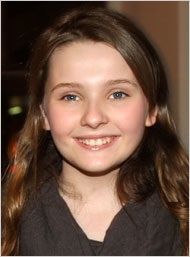Sent to you by moya via Google Reader:
 A few years ago, one of my first critical pieces was published by Popmatters.com. In this piece, I took issue with the idea of non-gay actors playing gay actors in TV and film. My argument lies in the fact that 1.) straight actors were in essence acting out what they assumed was "gay" behavior, 2.) they marginalized the number of roles available for "gay" actors, and 3.) that this falls under a cloud of privilege that has played out in various capacities in the History of the casting process in American Hollywood theatre, film, and television.
A few years ago, one of my first critical pieces was published by Popmatters.com. In this piece, I took issue with the idea of non-gay actors playing gay actors in TV and film. My argument lies in the fact that 1.) straight actors were in essence acting out what they assumed was "gay" behavior, 2.) they marginalized the number of roles available for "gay" actors, and 3.) that this falls under a cloud of privilege that has played out in various capacities in the History of the casting process in American Hollywood theatre, film, and television.
I realize that there were many things that I left out, over-emphasized and under-emphasized in one of the first public, published essays of my career (so please forgive me of these errors) but overall I think the question I raised is indeed a legitimate one — when an actor is given a role where they are to "play" a person who happens to be gay, disabled, Black, etc. and said actor is not, does this present a problem that links to privilege or should a "challenging" role like this just be given to a talented actor?
Currently there is quite a brouhaha brewing in New York over the casting of Abigail Breslin to play Helen Keller in an off Broadway production of The Miracle Worker, which is set to open later this Winter. The 13 year old star is already an Academy Award nominated actress of some note, having appeared in films such as Little Miss Sunshine. The concern comes from a number of deaf and blind actors who have objected to Miss Breslin's casting because she is not deaf or blind. According to Executive Director of The Alliance for Inclusion of in the Arts Sharon Jensen, by excluding a deaf or blind actor from these roles, they are being marginalized in the casting process for roles that speak to their particular experience, not to mention the larger artistic and ethical issues at stake here. Most notably, is it offensive, unethical, an example of the inner workings of privilege for a hearing, seeing actor to play "deaf/blind" Helen Keller?
I explored this issue in my prior essay around the topic of sexuality but this subject can certainly take on any number of identities. Privilege is generally a said advantage (by advantage I mean social advantage by way of gender, race/ethnicity, color, sexuality, class, etc.) that engenders you with exemptions from certain social liabilities and uncomfortable and/or painful experiences. In the world of casting, these privileges are often played out vigorously. Blackface (and Yellowface) were frequent forms of entertainment and to this day, diversity along the lines of race and ethnicity is still a problem in Hollywood. In Restoration theater, women were forbidden to become actors and their roles were assumed by men.
And the contemporary examples of this are endless: Felicity Huffman in her Academy Award nominated performance as a transgender person in Transamerica, Jessica Alba playing a Black woman in Honey, Sean Penn playing a developmentally disabled adult in I am Sam, etc. etc. etc. Some time ago I told a colleague how much I enjoyed the film Milk, particularly Sean Penn's performance of the gay-rights activist and politician. After I finished my praise of the film, she told me that her professor, an openly gay man, had many issues with the film, most notably that he felt as if Sean Penn was parodying/mimicking a common stereotype of gay behavior and lifestyles. Needless to say, I fell silent.
The person behind the casting of Breslin publicly stated that he was looking for a star, someone whose star power would comfort the investors behind this project and he didn't know of any deaf/blind pre-teen actors who fit this bill. Prior to this casting, the Alliance had problems with the same company when they cast a hearing actor in the role of a deaf character in a production of Carson McCullers' The Heart is a Lonely Hunter. The producers claimed to have auditioned a number of deaf actors but in the end went with a hearing actor because he was the best actor overall.
I think this Abigail Breslin fiasco introduces important questions into the casting process. Surely the folks on the other side of the debate have a sound argument: shouldn't the best person for the job be chosen? If money is the issue and fiscal concerns are paramount, does the weight of a mega-star (or at least a well-known actor) take precedence over broader artistic concerns and ethics?
Ideally this should not be a concern, but this doesn't work both ways. How many times do you see a Black woman cast in a role written for a a White woman? Perhaps sometimes but you certainly could see this the reverse. In fact, Renee Zellwegger's latest film New in Town was written by a Black man who had Gabrielle Union specifically in mind for the part (and even wrote the character as a Black woman) but the part was given to Renee. I have very strong, often unpopular ideas about the topic but I would love to hear what others think….

Things you can do from here:
- Subscribe to The Thirty Mile Woman using Google Reader
- Get started using Google Reader to easily keep up with all your favorite sites
.jpg)
No comments:
Post a Comment